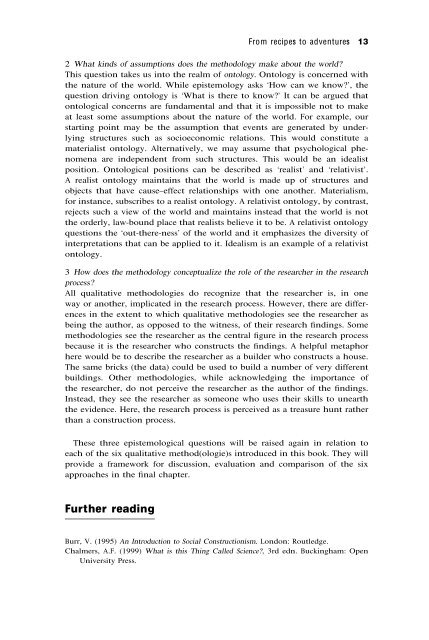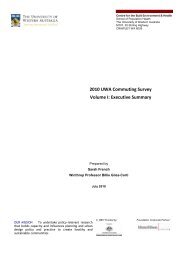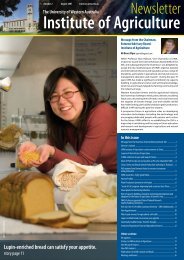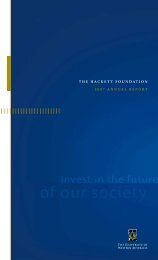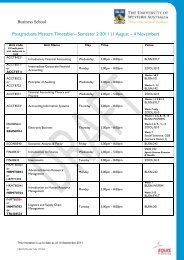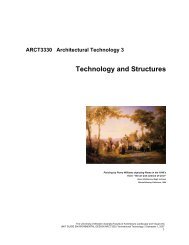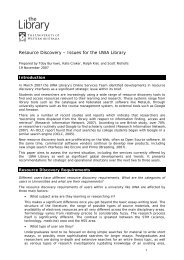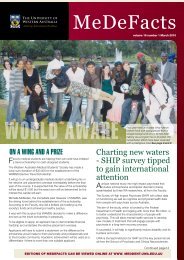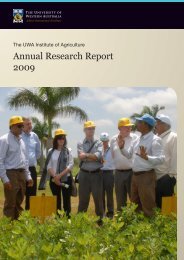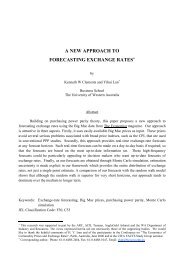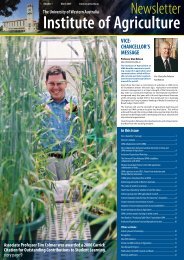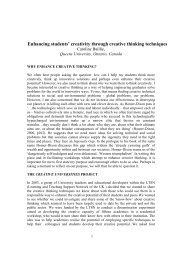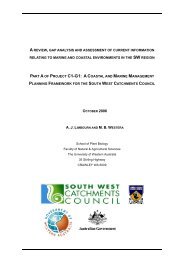Adventures in theory and method
Adventures in theory and method
Adventures in theory and method
You also want an ePaper? Increase the reach of your titles
YUMPU automatically turns print PDFs into web optimized ePapers that Google loves.
From recipes to adventures 132 What k<strong>in</strong>ds of assumptions does the <strong>method</strong>ology make about the world?This question takes us <strong>in</strong>to the realm of ontology. Ontology is concerned withthe nature of the world. While epistemology asks ‘How can we know?’, thequestion driv<strong>in</strong>g ontology is ‘What is there to know?’ It can be argued thatontological concerns are fundamental <strong>and</strong> that it is impossible not to makeat least some assumptions about the nature of the world. For example, ourstart<strong>in</strong>g po<strong>in</strong>t may be the assumption that events are generated by underly<strong>in</strong>gstructures such as socioeconomic relations. This would constitute amaterialist ontology. Alternatively, we may assume that psychological phenomenaare <strong>in</strong>dependent from such structures. This would be an idealistposition. Ontological positions can be described as ‘realist’ <strong>and</strong> ‘relativist’.A realist ontology ma<strong>in</strong>ta<strong>in</strong>s that the world is made up of structures <strong>and</strong>objects that have cause–effect relationships with one another. Materialism,for <strong>in</strong>stance, subscribes to a realist ontology. A relativist ontology, by contrast,rejects such a view of the world <strong>and</strong> ma<strong>in</strong>ta<strong>in</strong>s <strong>in</strong>stead that the world is notthe orderly, law-bound place that realists believe it to be. A relativist ontologyquestions the ‘out-there-ness’ of the world <strong>and</strong> it emphasizes the diversity of<strong>in</strong>terpretations that can be applied to it. Idealism is an example of a relativistontology.3 How does the <strong>method</strong>ology conceptualize the role of the researcher <strong>in</strong> the researchprocess?All qualitative <strong>method</strong>ologies do recognize that the researcher is, <strong>in</strong> oneway or another, implicated <strong>in</strong> the research process. However, there are differences<strong>in</strong> the extent to which qualitative <strong>method</strong>ologies see the researcher asbe<strong>in</strong>g the author, as opposed to the witness, of their research f<strong>in</strong>d<strong>in</strong>gs. Some<strong>method</strong>ologies see the researcher as the central figure <strong>in</strong> the research processbecause it is the researcher who constructs the f<strong>in</strong>d<strong>in</strong>gs. A helpful metaphorhere would be to describe the researcher as a builder who constructs a house.The same bricks (the data) could be used to build a number of very differentbuild<strong>in</strong>gs. Other <strong>method</strong>ologies, while acknowledg<strong>in</strong>g the importance ofthe researcher, do not perceive the researcher as the author of the f<strong>in</strong>d<strong>in</strong>gs.Instead, they see the researcher as someone who uses their skills to unearththe evidence. Here, the research process is perceived as a treasure hunt ratherthan a construction process.These three epistemological questions will be raised aga<strong>in</strong> <strong>in</strong> relation toeach of the six qualitative <strong>method</strong>(ologie)s <strong>in</strong>troduced <strong>in</strong> this book. They willprovide a framework for discussion, evaluation <strong>and</strong> comparison of the sixapproaches <strong>in</strong> the f<strong>in</strong>al chapter.Further read<strong>in</strong>gBurr, V. (1995) An Introduction to Social Constructionism. London: Routledge.Chalmers, A.F. (1999) What is this Th<strong>in</strong>g Called Science?, 3rd edn. Buck<strong>in</strong>gham: OpenUniversity Press.


